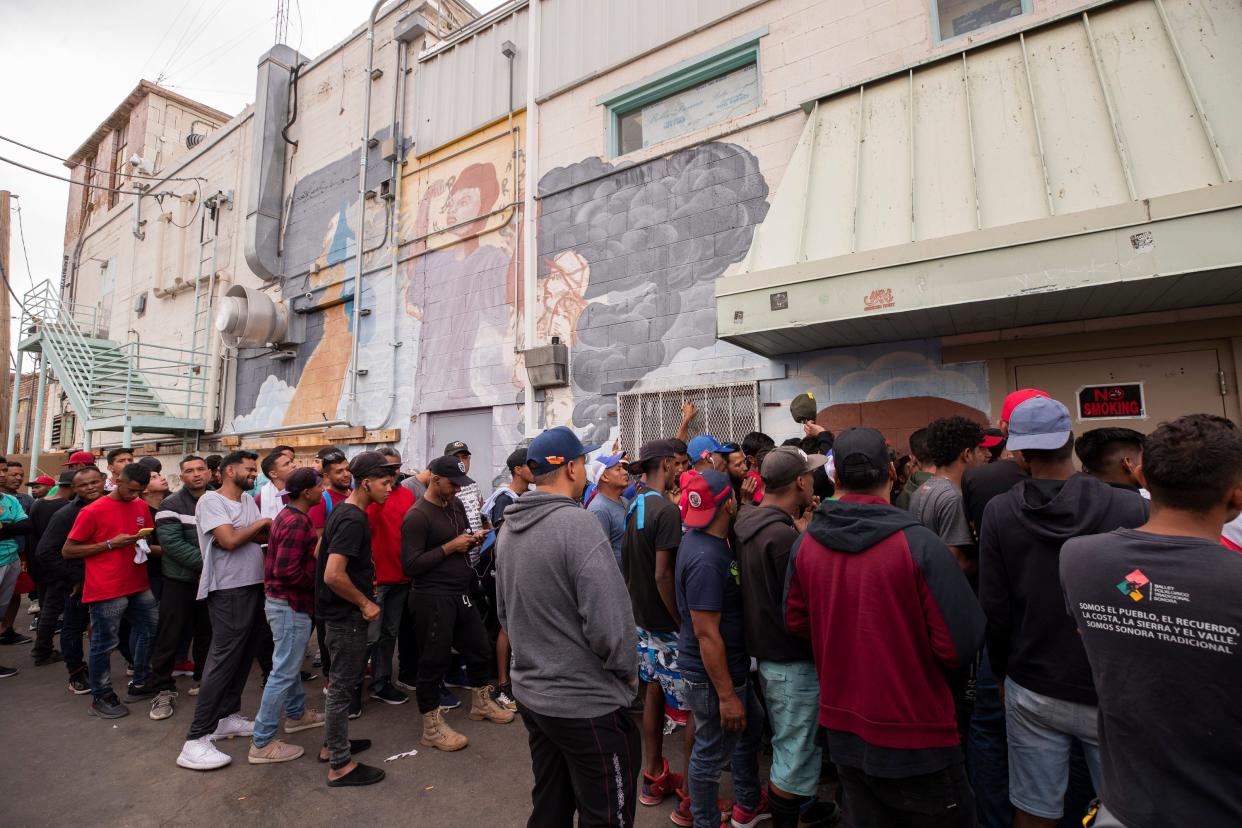Migrant crisis requires compassion, action to secure border: U.S. Rep. Veronica Escobar

Border communities such as El Paso have long been on the frontlines of immigration, often leading the response by helping provide shelter and support for vulnerable migrants. For the last several years, historic numbers of people from all over the world fleeing war, poverty, persecution, violence, and so much more have left their homes in search of a better life. This mass displacement has impacted a number of countries in the Western Hemisphere, including our own, and El Paso has been one of the American communities most impacted by the number of arriving refugees.
The situation — already significantly challenging — will become even more so in the coming days, weeks, and possibly months, as the federal government ends its use of Title 42, the pandemic-era rapid expulsion policy. The growing number of migrants arriving daily in El Paso has overwhelmed our federal workforce and shelter system and has strained our local governments. And while this has become a significant test of our resources, I hope it does not also test the humanity and compassion El Paso has always shown.
That’s not to say the situation isn’t frustrating and unsettling.
More: What is Title 42, when does policy expire and how does it impact border? What to know
We all want and deserve safety
It’s distressing to see so many people, including families and children, sleeping outside Sacred Heart Church and the Opportunity Center in south El Paso, and I know lower valley neighborhoods are alarmed by unknown individuals coming through their property. We all want and deserve safety and security in our community and at our border, which can be achieved through a well-managed and responsive immigration system.
Unfortunately, for decades, Congress and successive administrations have neglected the Western Hemisphere, and Congress has punted on modernizing our immigration laws. Shrinking legal pathways have made things worse, making asylum the most accessible immigration pathway available to most migrants. And six years of rapid expulsion policies have made migrants a lucrative business opportunity for cartels, which have harnessed social media as a powerful tool for misinformation and now have an iron grip on human trafficking.
Biden Administration working on solutions
The Biden Administration has been working on solutions to these chronic issues, collaborating with the neighboring countries of Mexico, Colombia, and Panama to tackle human smuggling and opening up some legal pathways to help take the pressure off the border. Addressing root causes of migration has also been a priority for the administration, and much of that work has begun to show success. But those investments and collaborations take time to bear fruit.
In the meantime, the Biden administration has surged personnel and unprecedented resources to assist our community. Never before has the federal government provided both advanced funding and reimbursements to governments and NGOs that assist with emergency shelter and migrant processing. The administration has also opened up processing centers in Central and South America to incentivize migrants to use legal pathways and prevent a perilous journey to the border, an effort I championed.
More: El Paso officials prepare for May 11 end of Title 42 pandemic restrictions on migrants
Sufficient resources remain key
Sufficient resources remain key in successful border management. Last year, the president requested a historic $4.9 billion for the Department of Homeland Security to hire more agents and officers, provide more technology, and increase funding for communities like ours. Unfortunately, my Republican colleagues only agreed to $2.7 billion, which the DHS warned would be inadequate to address the short-term impacts of the end of Title 42 and the long-term constraints created by a broken, outdated immigration system. Incredibly, most of my House Republican colleagues still voted against this funding altogether.
And over a week ago, House Republicans voted unanimously in favor of a bill that would cut 2,400 border agents and officers from next year’s budget and prevent NGOs from receiving any federal funds if they provide assistance to “unlawful immigrants.”
It is disingenuous to claim wanting to solve the humanitarian crisis at our border while at the same time voting against the very resources needed to address it.
It’s long past time for Republicans and Democrats to collaborate on the major legislative overhaul needed by Congress to address the crisis we face today. As El Paso’s representative in Congress, I’ve been working on immigration reform from day one. But I recognize the need for it to be a bipartisan solution. Soon, I will be introducing bipartisan legislation that I have worked on with a Republican colleague to provide common-sense, long-term solutions, and it is my hope that Congress seizes it as an opportunity to solve the immigration challenges of today and tomorrow.
This challenging time calls for both compassion and action, and as I continue to secure federal funding for our community and work with local leaders, I am committed to getting support for the bill I’ll be introducing that offers a bipartisan, meaningful solution that restores dignity to the process and people who have tried to successfully navigate a broken system for far too long.
U.S. Rep. Veronica Escobar, D-El Paso, represents Congressional District 16, which includes El Paso.
This article originally appeared on El Paso Times: Migrant crisis requires compassion, action at border: Veronica Escobar

